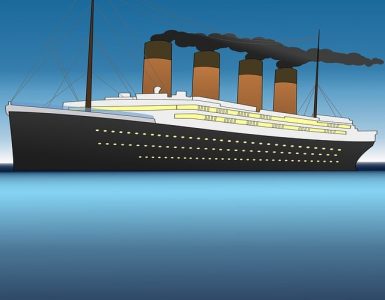History, as they say, is written by the victors. But what about the also-rans, the near-misses, the completely unforeseen consequences? Textbooks often gloss over the messy, chaotic realities of the past, focusing on neat narratives and prominent figures. But the real story is far more fascinating, full of unexpected twists, hilarious blunders, and characters you’d never believe played a part.
Let’s take a stroll through time, peeking into some of history’s hidden sidelines, where the unexpected reigned supreme.
The Day the Romans Accidentally Invented Concrete (and Almost Didn’t)
We all know the Romans built impressive things. Massive aqueducts, sprawling amphitheaters, and surprisingly durable roads. Much of their success rested on their mastery of concrete. But did you know that their invention was, at least partially, a happy accident? Early Roman concrete wasn’t quite as durable as the stuff that still stands today. Their initial recipes were less precise, relying on readily available materials. It wasn’t until they started using volcanic ash (pozzolana) from the Bay of Naples that they stumbled upon a super-strength formula – a formula that accidentally revolutionized construction and allowed for the longevity of their impressive structures.
Imagine a Roman engineer, frustrated with crumbling walls, experimenting with different ingredients. A chance discovery, a bit of luck, and suddenly, they had a building material that would shape the world for centuries. It’s a reminder that even seemingly monumental achievements can have remarkably humble beginnings. ¿Cuál es la historia de la Ruta de la Seda?
The Surprisingly Important Role of Potatoes in the French Revolution
The French Revolution: a period of upheaval, political turmoil, and dramatic change. We typically focus on the storming of the Bastille, the Reign of Terror, and Napoleon’s rise to power. But what about the potatoes? While not as glamorous as guillotines, the potato played a surprisingly significant, albeit indirect, role in the revolution. In the 18th century, the potato was a relatively new crop in Europe and became a crucial food source, especially for the peasantry. Its high caloric density helped alleviate some of the widespread hunger and poverty that fueled the social unrest leading up to the revolution. A stable food source, even if a humble one, contributed to the population growth and the overall demographic shifts that influenced the social and political landscape – a rather understated contribution to one of history’s most significant events.
La gran inundación de melaza: Una situación delicada
Boston, 1919. It wasn’t a revolution or a war, but a catastrophe of surprisingly sticky proportions. A massive tank containing over two million gallons of molasses burst open, unleashing a wave of sweet destruction that swept through the city’s North End neighborhood. The resulting flood was devastating, killing 21 people and injuring 150. The sheer force of the molasses wave was astonishing; it even knocked buildings off their foundations. This isn’t the kind of historical event you usually find highlighted in school textbooks, but it’s a gripping illustration of how seemingly innocuous everyday objects can cause catastrophic disasters when things go wrong on a massive scale.
El curioso caso de la peste danzante de 1518
Now, for something truly bizarre: The Dancing Plague of 1518. In the city of Strasbourg, a woman began dancing uncontrollably in the street. Soon, others joined in, and the dancing frenzy spread, lasting for months. Hundreds of people, some reportedly dancing to their death from exhaustion or heart attacks, participated in this mass hysteria. The causes remain mysterious to this day; explanations range from ergot poisoning (a fungus that can cause hallucinations) to mass psychogenic illness (a phenomenon where shared stress leads to physical symptoms). It’s a chilling reminder of the power of mass hysteria and how easily rational thought can be overtaken by unexplained phenomena.
The Titanic: More Than Just an Iceberg
The sinking of the Titanic is a historical event that needs no introduction. But the story isn’t just about a collision with an iceberg. The details often missed involve the sheer number of factors that contributed to the disaster: inadequate lifeboats (for the sheer number of passengers), communication breakdowns between the crew and passengers, and the Titanic’s high speed in icy water. Also, often overlooked is the class system which heavily influenced who survived and who perished. Wealthier passengers had more access to lifeboats than those in steerage. The tragedy highlights not just the force of nature but also the human failings that exacerbated the crisis and led to unnecessary loss of life.
The Unexpected Impact of a Simple Printing Press
Gutenberg’s printing press revolutionized communication, disseminating information at an unprecedented rate. This led to the spread of literacy, scientific advancements, and religious reforms – all monumental impacts. But what’s often overlooked is the press’s indirect influence on the very nature of warfare. The rapid spread of information, including military strategies and news of battles, changed the dynamics of conflict. This illustrates how seemingly simple technological advancements can have far-reaching consequences in vastly different areas of life.
History isn’t just a list of dates and names; it’s a complex tapestry of events, personalities, and unforeseen circumstances. By looking beyond the headlines and the heroic narratives, we uncover the hidden stories, the unexpected players, and the unlikely outcomes that shaped our world.

























Añadir un comentario